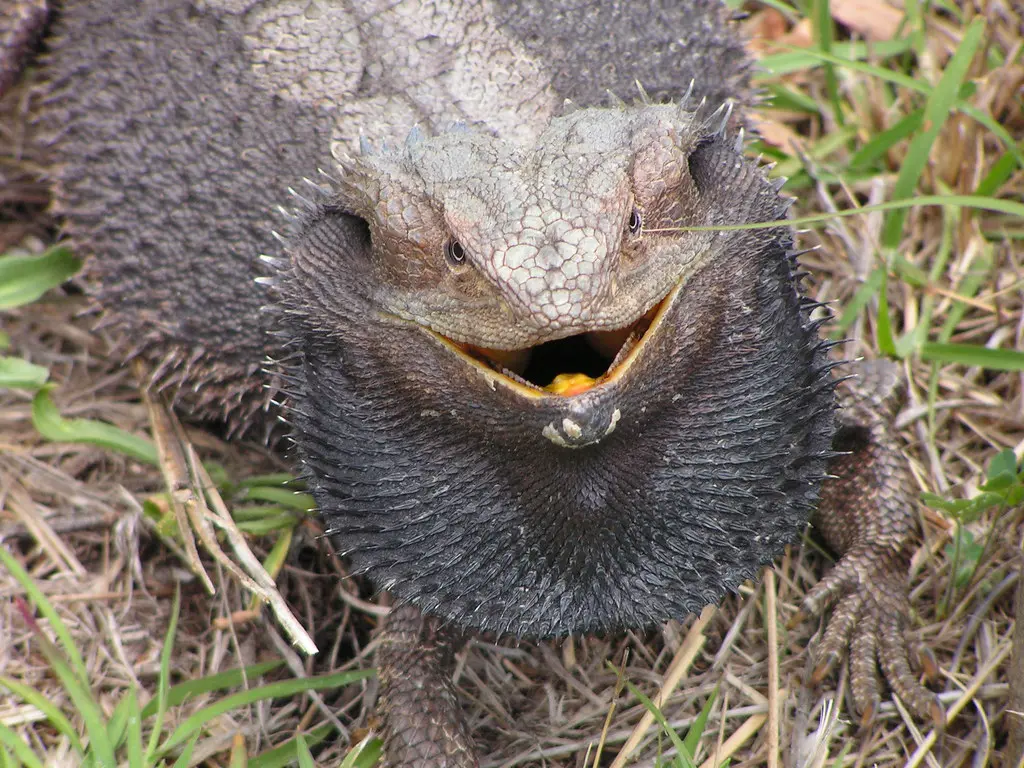Curious about the vocal expressions of your bearded dragon? Surprisingly, this seemingly quiet reptile does have something to say, adding a unique touch to the symphony of pet voices!
Learning to understand their distinct noises and signals can potentially pave the way for a deeper empathetic understanding of our scaly companions.
So, Do Bearded Dragons Make Noise?
YES, bearded dragons do make noise, but not quite in the way you might anticipate. Unlike many pets, bearded dragons aren’t considered sound-producing creatures. They lack vocal cords, the primary gateway that we mammals, along with a variety of other fauna, use to produce verbal sounds.
So unfortunately, you won’t be greeted with a vocal welcome from your bearded dragon when you return from work, as endearing as that scenario might be.
Despite this anatomical disadvantage, bearded dragons are not entirely silent creatures. They have their unique means of communication, which on rare occasions can manifest as audible noise.
But how does that happen?
Types of Noise Bearded Dragons Make
Three main types of noises characterize our beloved beardies’ sonic landscape: hissing, purring, and clicking. Let’s explore each sound in detail:
1. Hissing
One of the most common sounds that bearded dragons make is hissing. This sound is typically linked to a simple, instinct-driven reaction—fear.
When frightened or agitated, the bearded dragon, in line with other reptiles, will puff up its body, expand its beard (the area under its mouth), and emit a soft hiss.
However, it’s essential to understand that hissing is a last resort for these creatures. Real-life dragons, they are not. Confrontation is not their style, and the hiss is often not a declaration of war but rather a plea for peace.
2. Purring
Another sound frequently heard from bearded dragons is a soft, rhythmic purring. Yes, just like a cat! This sound is conversely linked to contentment.
A purring bearded dragon is typically a delighted creature, keen to show its satisfaction. So, if you hear your dragon purring, that’s often a good sign!
3. Clicking
This is a rarer sound for bearded dragons, but one that shouldn’t go unnoticed. If you hear your dragon making repeated clicking sounds, then it may be time to call in the experts.
This sound can suggest respiratory issues or disease and usually requires immediate vet attention.
Understanding their Behavior
Understanding the meaning behind these sounds and acknowledging when they occur can drastically help improve the bond and relationship you share with your pet bearded dragon.
However, it’s imperative to remember that these are animals that utilize action over sound.
By opening its mouth wide (known as gaping), closing its eyes, lashing its tail, or changing the color of its skin (color morphing), your bearded dragon communicates richly.
To truly connect with this creature, understanding these innate behaviors surpasses the need to interpret any generated noise.
Health Implications with Noise-Making
Unusual noise-making might very well signal underlying problems. Clicking, wheezing, or persistent hissing are often invitations to a veterinary examination.
These symptoms could suggest respiratory problems, diseases, or stress, needing professional assistance.
Regular check-ups and keen observation of your dragon’s behavior will ensure early detection and resolution of potential health issues.
Conclusion
In the grand scheme of things, bearded dragons are indeed low on noise. The few instances they produce sound are intimately connected to their instinctual behavior or potential health concerns.
With most interactions between dragons and humans occurring non-verbally, the complexities of their communication reveal themselves not through the sporadic purr or hiss but through their captivating yet subtle actions.
Having a pet bearded dragon, thus, is equal measures fascination and responsibility. As a potential owner or just a curious mind, knowing the sounds they make broadens the understanding of this exotic pet and is essential for its well-being.
So listen attentively and respond to your dragon’s needs with the tender care they deserve, fostering a bond that is as silent as it is strong.
